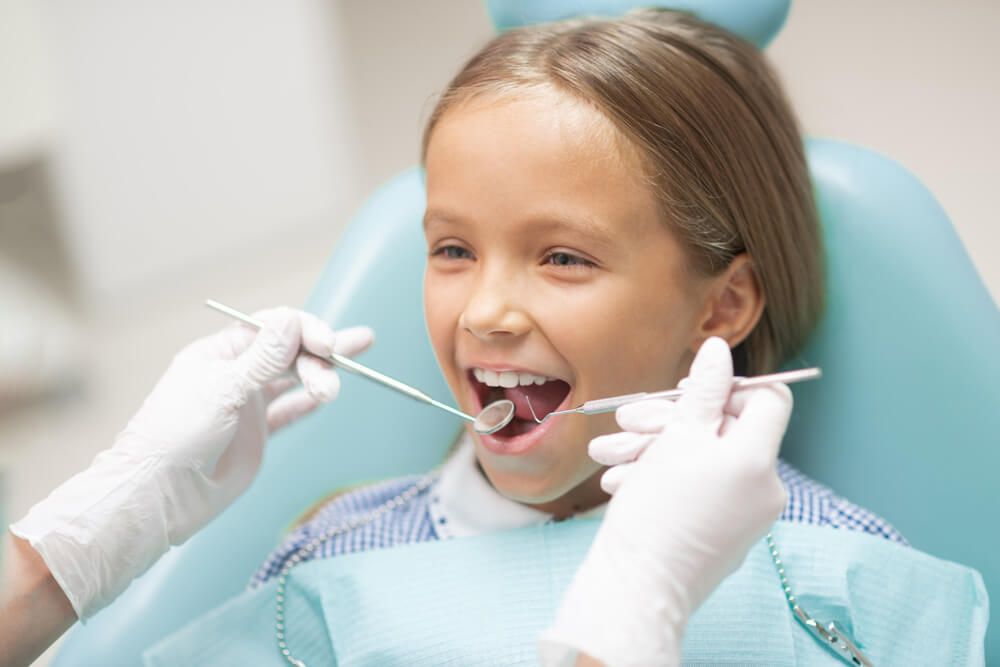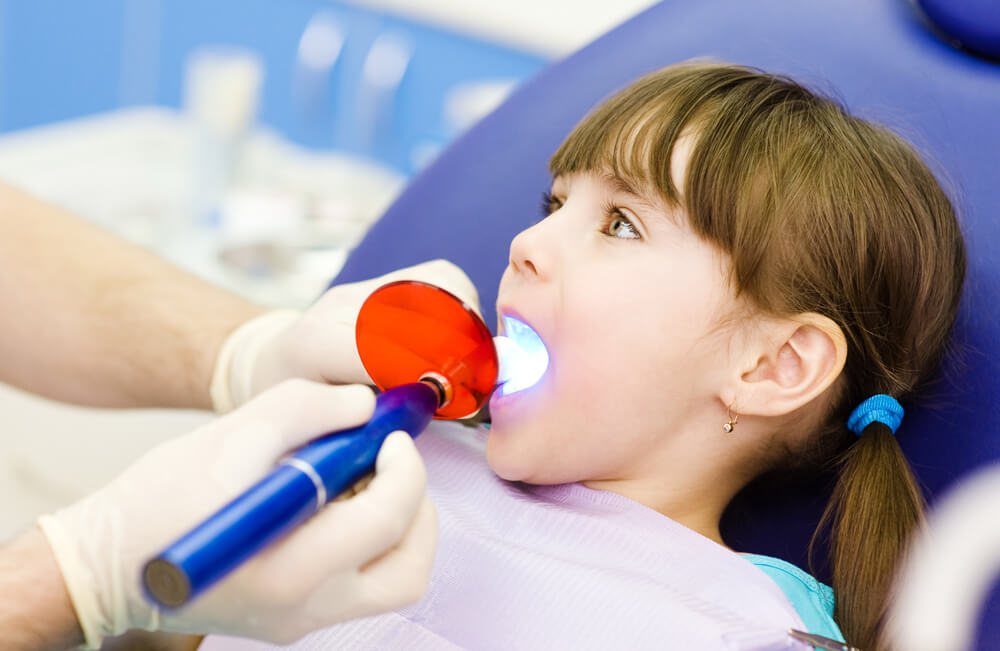How often should I come into the dentist?
Well, what I could say is for the average patient, coming every six months is really expected and routine and really quite helpful. For patients who have additional concerns or additional needs, let's say you have gum disease, you have an increased rate of cavities, you have something going on that we're actively managing, monitoring, or treating for you, it's not uncommon to be seen every three months. So that's four visits a year instead of just the two visits a year. On the other hand, I've seen some patients who say, well, I only go if there's a problem, and usually that's a poor way to keep your health, even if you are healthy, because most dental problems don't start with symptoms. They start with small findings that we can see before they become painful, before they become irritated, before they give you any evidence that they're growing or hurting or damaging your tooth. We can see those with even just a visual checkup or definitely with some x-rays. So what I would say to those patients who say, well, I only come in if something's painful, if something's hurting, that's not a good plan. Not if you want to prevent problems, prevent things that cause you pain, and fix small things when they're small versus letting them get bigger. So small problems become medium problems. Medium problems, they become emergencies. You can see our other video on emergencies, but don't be that guy. Just because I ignored it, it grew, it got bigger, and now you're calling on New Year's Eve or Christmas and saying, hey, I have this problem, it's blowing up. That's a lot tougher. You might not be able to find something to fix that issue, especially on those hard-to-fill dates that are holidays that are off times for the office. Don't take that risk.
What about fluoride treatments?
One of the most common hot-button issues that we also see when it comes to those regular appointments is we'll ask our patients, hey, do you want fluoride treatment? And a good number of patients say yes, a good number of patients say no. There's been a lot of controversy around fluoride recently, and here's what I'll say. For the fluoride that we use in the office that's just painted on the outside of the teeth, one of the good things about that, one of the benefits is you get to spit that out. You're not ingesting it in your body. It doesn't go into your bloodstream. It's not part of your digestion. That's just something that you put on the surface of the tooth. Think of like a lotion or a cream that you would put on your skin. That's a lot different philosophically than something that you would ingest, either a pill or in the water supply that goes through your digestion, that goes into the bloodstream, that's distributed throughout your body. So if you are on the fence about fluoride, what I would say is you can pick something that's kind of in the middle. You could say, hey, it's okay if I use fluoride that I just apply to the outside of my teeth. That's the fluoride varnish or the rinses that you can use because you can be confident that you can spit those out entirely. On the other hand, if a mom or a family member says, you know what, I don't want the fluoride that goes in the water supply or I don't want the fluoride that you ingest in pill form, we respect that. We still recommend that. But we would say, that's totally fine. Why don't we pick something that's a good hybrid of those two and it's a little bit of a compromise. But by using something that's just on the surface that then you can spit out, I think that's a pretty fair compromise to make. Of course, we know the benefit of fluoride is that it strengthens the enamel. It makes it less likely to be dissolved in the presence of acid. And then the other response that I'll hear is, well, I don't eat acid. And that's actually not true. Our Western diets have a whole bunch of acids in it. And even if you aren't eating a direct acid, whether it's from a fruit or a candy or something artificial, the bacteria that just live in our mouth between our teeth and around our gums are fully capable on their own of producing acid, even when you're eating regular foods. So it doesn't just have to be sugar, it just doesn't have to be the direct consumption of an acid, but just the simple bacteria that live on and around our teeth, they can make acid all on their own. So you're still getting the exposure, whether you think you do or not.
How do you detect tooth decay and how do you prevent tooth decay in your teeth?
Well, the detection is pretty straightforward. You got to leave that to us. We can see it visually. We have a whole bunch of ways to magnify the teeth and look in between them. But the other thing that we rely on is either the light examination or we can use dental x-rays. All of those are really good, predictable, and reliable for showing cavities between the teeth. Now, the other question is, how do I prevent those? It's a little harder and a little more nuanced. We were all told as children, hey, avoid candy and we need to avoid sugars. And you know what, guys? That's still true. Those can cause cavities. But one of the biggest culprits that we find nowadays is even conscientious parents who say, I'm really going to limit the sugars. I'm going to limit the candies. I'm going to limit those things that we know cause decay. It's the sticky, the sweet, or the sour things. One of the other culprits is carbohydrates. It's the chips and the crackers and the cookies and the goldfish and the wheat thins and those kinds of things, especially when you have long-term access to snack on those in between meals. Those really go a long way in terms of enhancing cavities and putting you back at a higher risk. So we see a number of tough situations where the parents are doing great. They're keeping the kid away from sugars and they don't have all those sweet and gummy snacks. But at the same time, the kid's been a snack monster with all the cookies and the crackers and chips and the things that are more like the wheat thins and those things in and of themselves can also contribute to cavities. So you really got to watch that diet. And in your in between meal times, in your snack times, really tend more towards the meats or the cheeses or the fruits or the vegetables. I know they're less satisfying to snack on, but they're also less risky, definitely for our teeth as well. So steer away from the carbohydrates, stay away from the bready products for your snacks, and much more towards the more hearty ones, the nuts, the cheeses, the meats, and the fruits and vegetables. Those should be the bedrock of your snacks. Allow unrestricted access to those, but restrict the access to the carbohydrates.
Why do I need a dental x-ray?
The question we run into from time to time is why do I need a dental x-ray? Obviously, it's so we can see stuff. It helps us see in between the teeth. But there's a reason why. The reason why is that it can show us a little problem forming between two teeth so that we still have the option to treat it non-invasively. Let me say that another way. If we find a cavity early enough, we can treat it non-invasively. Early enough, we can treat it not with a shot and not with a drill, but we can treat it with a surface treatment, diet modification, or remineralizing therapy so that it might never grow bigger and you might never need a filling. You might never need a shot. You might never need the drill. That's our goal of taking those x-rays.
How safe are dental x-rays?
I'm so glad you asked. Dental x-rays are so safe that a couple years ago, we found out we no longer need to even use the lead shields for those x-rays. They said it made no difference. They weren't even recommended anymore, and they found there were more difficulties with the lead shield getting in the way, causing us to need to make a retake versus how much radiation it actually saved from us. So that's something that's changing, and we get a lot of questions when patients are like, don't I have to wear the gown? Don't I have to wear that big lead thing? The answer is no, you don't anymore. By law and by statute, we don't even need to use those. We still have one as a backup in case someone requests it. That's fine. It doesn't bother us, but you don't need it anymore. X-ray is insanely safe.
Can we talk about gum disease?
So we've talked a little bit about cavities, but what about gum disease? Well, what the heck is gum disease? The simplest form of describing this is if your tooth or your teeth are like trees that stick up and down, well, then the roots of those trees, like the roots of the tooth, they're in something solid, and that something solid for our teeth is bone. Our teeth are anchored in bone. If that bone has a problem and it's starting to dissolve away or go down, well, that's like the foundation being washed away from a tree. We don't want that. We don't want the foundation to be washed away from your teeth. Now, some people have a really aggressive form of that. So the foundation is going down, the teeth can become loose, and there's less and less foundation that's holding them in place. And we've seen terrible situations where a perfectly healthy tooth, no cavity, no chip, no crack, it wasn't even discolored, a beautiful looking tooth, completely lost its foundation. That tooth became loose and was lost. That's the evil side of gum disease. The other part that's really difficult is gum disease hardly ever comes with any symptoms. So you wouldn't see it. You wouldn't feel it. You wouldn't have pain. Some patients don't even recognize that the tooth is loose until it's too late. That's something that can be caught routinely from a regular visit. Any dental examination and even the simplest form of x-rays would be able to show us that, and we could let you know. Now, there's no magic treatment. There's no time machine that turns back time and makes that bone grow back. But if we see the early signs of that bone loss, there's a ton of things that we can do to help stop that process so that you can keep your teeth, keep your smile, enjoy your food, and be confident that your teeth are going to stay in the same place.

Dental Exams and Digital X-Rays
Regular dental checkups and x-rays are fundamental for the best possible oral health. We recommend that each patient visit Clackamas Smiles Family Dental to see our family dentist every six months for a comprehensive dental exam.
Digital x-rays will be taken so that Happy Valley family dentist, Dr. Suess and his staff can view the health of your jaw bone and identify cavities not seen with the naked eye. The timing of dental x-rays is tailored specifically to each patient’s needs, and also provides images that can be quickly and easily transferred to specialists or insurance companies.
Fluoride Treatment
Dr. Suess may decide that fluoride should be part of your overall treatment. Fluoride treatments re-mineralize teeth, stop developing cavities and make your teeth more resistant to acid attacks from plaque, bacteria, and sugars in the mouth


Tooth Sealants
Teeth with deep grooves along the surfaces can trap food particles and plaque that are difficult to reach through regular brushing and flossing. In these cases, Dr. Suess can apply a tooth sealant that protects tooth enamel from plaque and resulting decay.
Clackamas and Happy Valley dentist, Dr. Suess can provide this simple procedure in one visit, in which a tooth-colored plastic “coating” is painted onto the surface of the tooth. Generally, sealants take only a few minutes to apply, wear well under ordinary circumstances, and can last several years before a reapplication is needed.
Mouth Guards
A variety of dental problems are the result of teeth grinding, also known as bruxism. Symptoms can include sensitive teeth, jaw pain, headaches and ear or neck aches. Teeth grinding can have serious, long-term effects, such as broken, chipped or cracked teeth.
If you suspect that you grind your teeth during sleep, Happy valley dentist, Dr. Suess can help you figure out whether or not a medical condition may be contributing to this habit. Once teeth grinding has been diagnosed, Dr. Suess can provide a custom fitted night guard for your teeth from a simple impression of your top and bottom teeth, taking special care to ensure that your nightguard is adjusted to your unique needs and fits perfectly for maximum protection.


